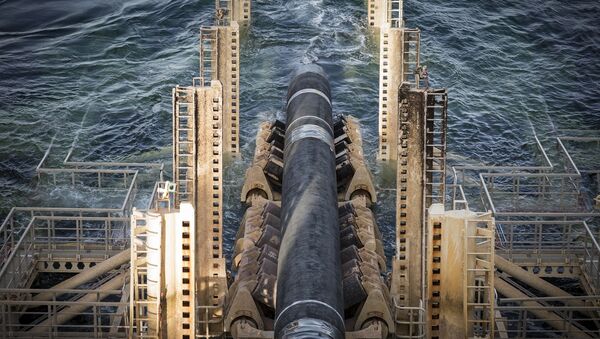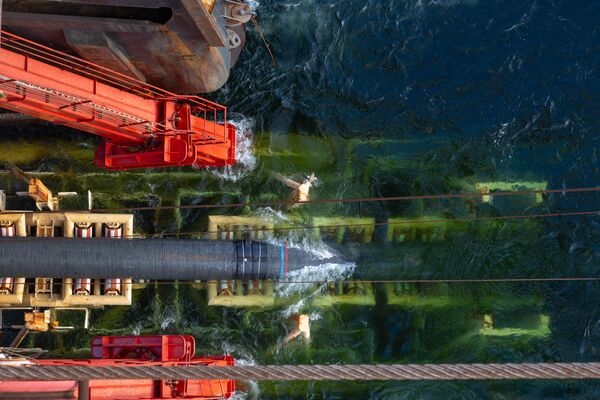In an article published in Forbes, Anna Mikulska, a fellow at the Centre for Energy Studies at Rice University's Baker Institute, has indicated that the intended US sanctions against the Nord Stream 2 pipeline project might not only be ineffective at accomplishing the intended purpose, but also damaging to the US.
Mikulska argued that despite hopes in the White House, the sanctions are unlikely to force Western European countries to abandon the project, which, as the pundit believes, will be completed by Russia, even "if for the sheer desire to show its resolve". She further stated that while Central and Eastern European countries would welcome such sanctions, US allies in Western Europe would not.
The researcher pointed out that the sanctions would ultimately fail to accomplish the goal to stop Nord Stream 2, although the measure would diminish Russia's profit from the gas trade. However, it would at the same time also spoil the US’ ties with some of its allies, while simultaneously dividing the EU internally. Mikulska noted that such a development would be harmful for the US, as it is currently embroiled in a trade war with China and engaged in difficult trade talks with Canada and Mexico, while at the same time trying to impose sanctions on the Venezuelan and Iranian economies.
"This tactic could delay the construction and make the pipeline more costly and, as a result, diminish the rents that the Russian regime could pocket from gas sales to Europe. However, since the effect of U.S. sanctions on NS2 would in practice be much more limited than originally intended, the disadvantages could outweigh the benefits", Mikulska wrote.
The pundit argued that Washington should explore other, less costly options to reduce Russia's gas sales to Europe and of its alleged influence over importers. One alternative that she suggested would be by boosting the US liquefied natural gas (LNG) trade with Europe, an option advocated by President Donald Trump earlier. However, Mikulska added that Washington must go beyond sheer declarations and actually help American LNG companies enter the European market.
"Thanks to the increasing LNG exports and deepening of the natural gas market, [Russian gas-exporting company] Gazprom is unlikely to be able to continue in its position of dominance in Europe. As long as alternative supplies can access the European market, they will provide a ‘credible threat’ and a price ceiling for Russian gas", Mikulska wrote.
Mikulska suggested achieving this by supporting the industry with money via "forgivable loans, direct financing, project finance loans or assured payback", while also trying to achieve greater "liberalisation" of the European energy market.
The researcher touched on the issue of Ukraine losing its status as a transit state for Russian gas, something which has been raised by both the US and the EU. Mikulska noted that growing EU energy demands and occasional "particularly cold" winters would lead Russia to keep using the Ukrainian pipeline, but noted that this is not necessarily good for the country. While it has received crucial income from being a main transit route for gas, it has hardly helped the country bring an end to its "economic and political dysfunction".
"Distinctly anti-market policies geared toward protecting Ukraine’s transit country status may actually support uncompetitive and inefficient market structure and keep the country reliant on Russia. Ukraine needs to reform the way it operates", she wrote.
Meanwhile, Nord Stream 2 AG, the company working on the Russian pipeline, has reported that 73.6% of the construction of the project is complete. The length of the double pipeline is currently 1,805.6 kilometres. Once finished, Nord Stream 2 is expected to provide 55 billion cubic metres of gas annually from Russia to Europe.
The US introduced a bill in 2019 aiming to impose sanctions on all companies related to constructing and operating the Russian Nord Stream 2 pipeline, despite criticism from some of European states. Washington claims that the project endangers Europe's energy security, as it allegedly gives Moscow a lever to influence importing countries.
However, several European leaders, including German Chancellor Angela Merkel, one of the most prominent advocates of the project, have rejected the US claims, saying that Nord Stream 2 is purely an economic project.






